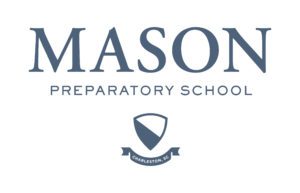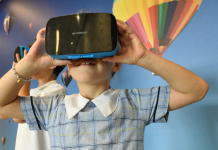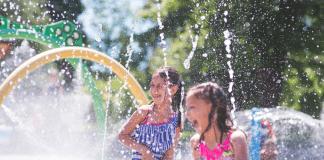 Don’t Stress: Kindergarten Should be Fun!
Don’t Stress: Kindergarten Should be Fun!
Are you considering kindergarten options for your child? If so, you probably have a ton of questions. At Mason Prep, we have spoken with many kindergarten parents over the years, and their questions mainly fall into two areas: “What type of learning environment is best for kindergarteners?” and “What does my child need to know to begin kindergarten?”
What type of learning environment is best for kindergarteners?
A kindergarten program should build students’ confidence and set them on a path for future academic success. Students should feel safe and secure in their classroom and look forward to coming to school. As any parent knows, kindergarteners have a lot of energy, so interactive classrooms provide the stimulation students of this age need to thrive.
At Mason Prep, we describe our program as “joyful learning,” where students are up and moving, interacting with their teachers and classmates, and having fun! If you were to peek in a kindergarten classroom, you might find what looks like a kind of happy commotion, with children moving about the room and engaging in individual activities. What you may not realize is that each of these activities serves a specific purpose in the education of a kindergartener, teaching both academic and social skills by using engaging hands-on activities. These “fun and games” are instrumental in setting kindergarteners up for success in kindergarten and beyond.
 Math Skills
Math Skills
For example, you might expect that a kindergarten math curriculum would include basic addition and subtraction, but young students also need to begin to understand broader math concepts like graphing, patterns, sequencing, and subitizing by using tools such as tally marks, ten frames, and dominos.
Teachers use games like making a “math stew” to make learning these concepts fun. To make math stew, a student is given a recipe card that tells him or her how many of each ingredient to put in the stew. For example, to make a holiday-themed stew, students add peppermints, gumdrops, and icing (bits of yarn) to a pot according to the recipe. The student also writes the number of each ingredient used on a worksheet as a number sentence and adds them together.
Literacy Skills
Learning to read is a challenging process where skills are mastered and built upon to arrive at those “aha” moments of being able to string together sounds to read words, then phrases, then complete sentences. Kindergarteners begin by learning to recognize letters and the sounds those letters make. They practice blending (building a word from individual sounds, e.g., sounding out “b-a-g” to form bag) and segmenting (breaking a word down into its individual sounds, e.g., dad is made from d, a, and d) to learn how letters come together to form words.
To practice literacy skills, students love to “write the room.” In this activity, the teacher places pictures of things all around the room and gives students a worksheet to complete by visiting the pictures. For example, students may be given the words “mop,” “bat,” and “log” on their worksheet and asked to find pictures of things that rhyme with those words. The students remain engaged in the task as they are up and moving around the room, going on a kind of scavenger hunt to find the pictures.
 Social Skills
Social Skills
In addition to learning academic skills, building social skills is an important part of the kindergarten curriculum. Kindergarteners at Mason Prep practice the following skills each day: responsibility, time management, accountability, and good work habits. These skills are taught through learning stations and classroom duties.
Learning stations are many different activities that are set up around the classroom. For example, the learning stations one day might include an art project, reading, math journaling, and floor games. The teacher tells students that they must complete a certain number of activities by a designated time. The students, each held responsible for getting their work done, must use time management skills to figure out how to get their tasks completed within the time frame.
Kindergarten teachers also assign class duties to each student. The duties, which change each week, include greeter, flag holder, weather helper, and door holder, and students look forward to seeing which job they will be assigned. Students learn how to be a team, and that each person is an important part of that team. Sometimes a student needs some help getting his or her job done, and you will see students pitch in to assist their classmates.
 What does my child need to know to begin kindergarten?
What does my child need to know to begin kindergarten?
While there is so much to learn academically in kindergarten, there is also a great deal of learning to do in terms of how to behave in a classroom setting, how to contribute to the group, and how to come to school each day ready to learn. Some things to consider when determining if your child is ready for kindergarten:
- Does your child have the ability to listen to instructions and follow directions? Your child needs to be able to pay attention to what the teacher is asking him or her to do and then act on that direction.
- Does your child have the stamina to be in a more formal learning environment? So much happens during a day at kindergarten! Your child needs to be able to make it through the school day with energy and attention.
- Is your child showing readiness for the curriculum? For example,
- can she recognize letters and numbers?
- can he spell his first and last name?
- does she have the fine motor skills to color inside the lines and cut on or near a line?
Please note that we have NOT said that your child needs to know how to read before entering kindergarten! Children at this age are developing at different rates and in different ways. Children learn how to read on their own schedule, so you do not need to worry if your student is not reading when he or she begins kindergarten.
Additional Resources
You can find ways you can help prepare your child for kindergarten in our article: “7 Steps to Prepare Your Child for Kindergarten”.
You can also download our Kindergarten E-Book.
Most importantly, kindergarten should set a positive tone for a child’s academic life. Coming to school and having fun shows students that learning is enjoyable and puts them on a path to a lifelong love of learning.
Connect with Mason Prep
If you are looking for a nurturing and supportive place for your child, Mason Prep is a wonderful school, and community, to check out.














